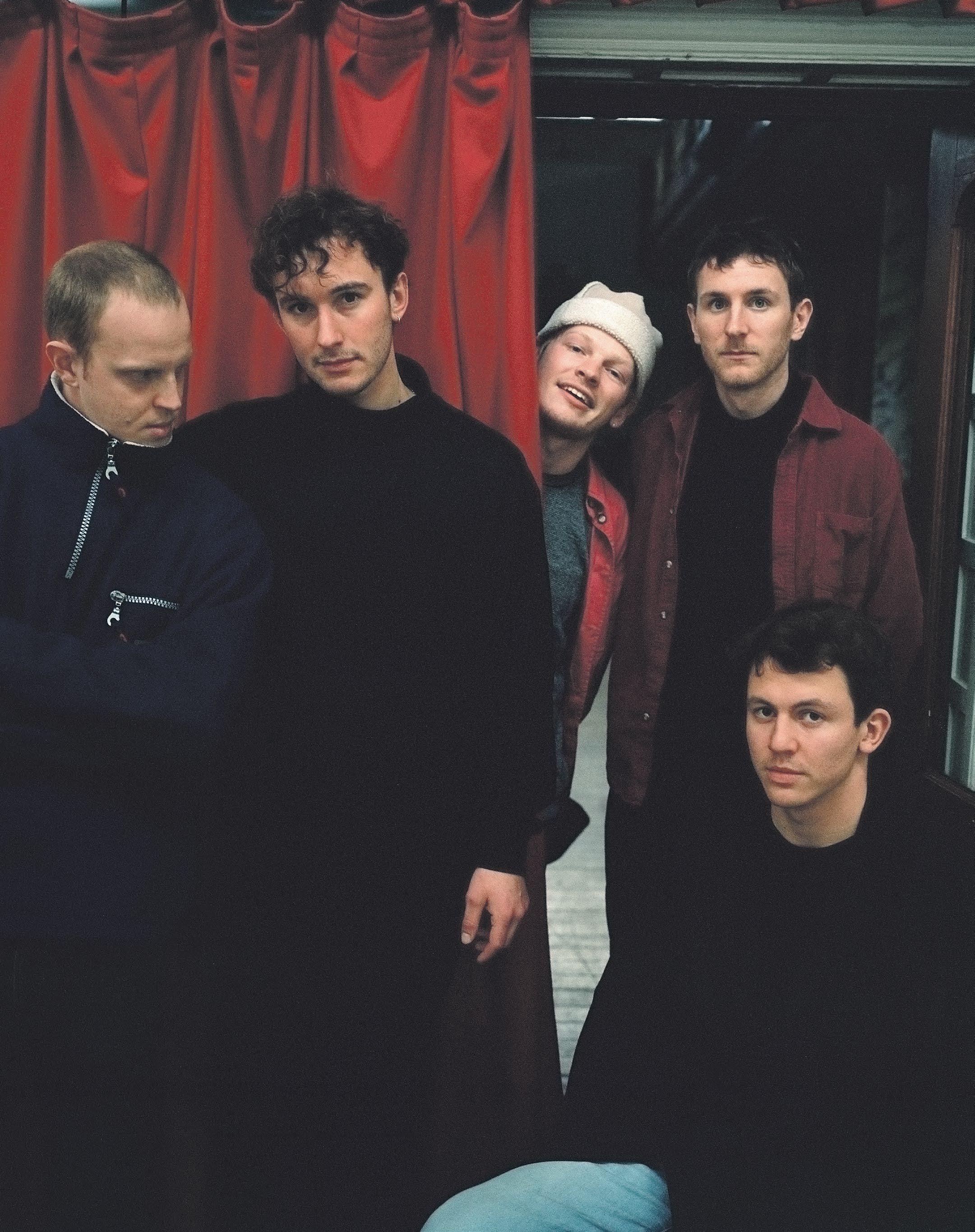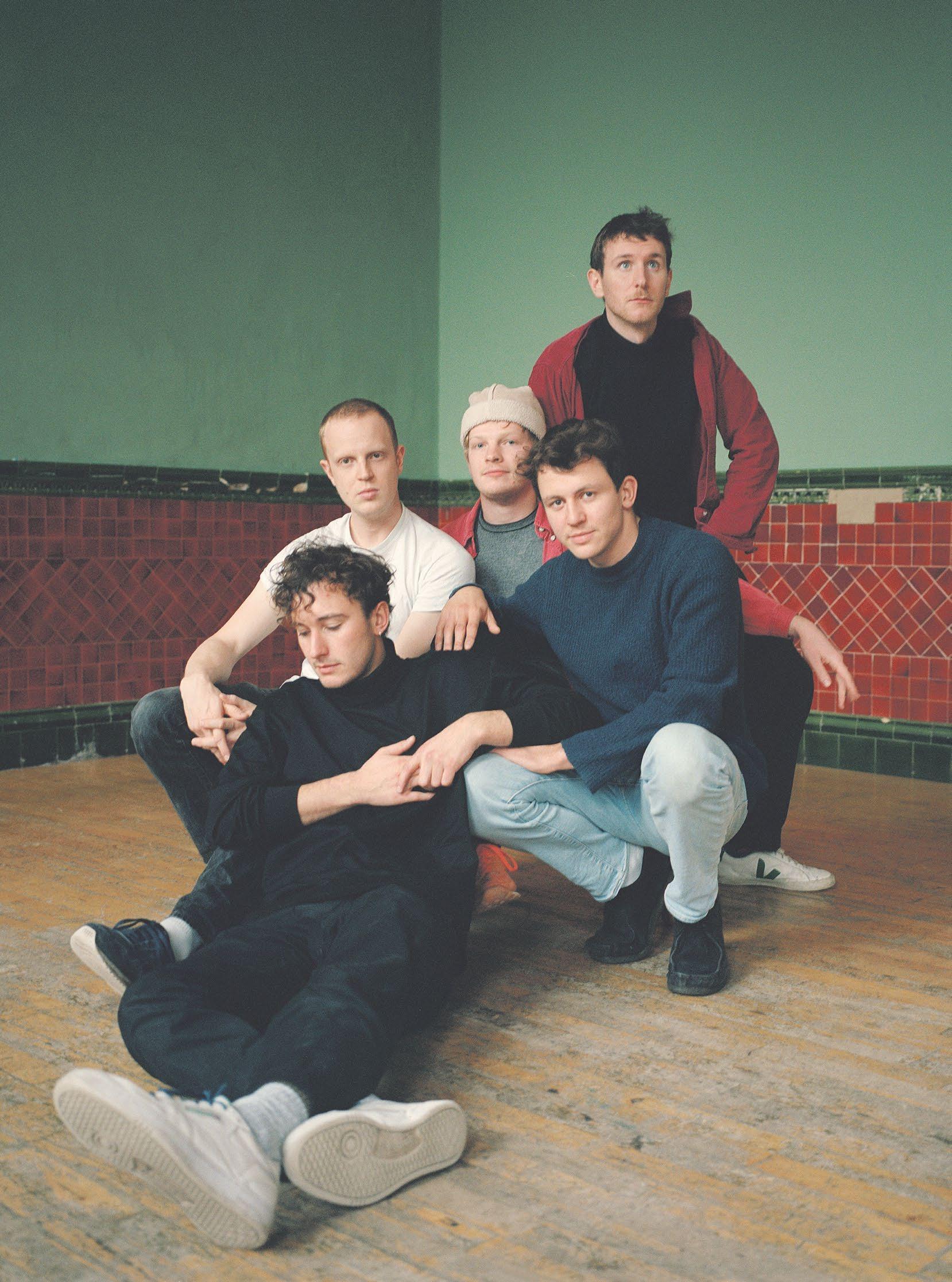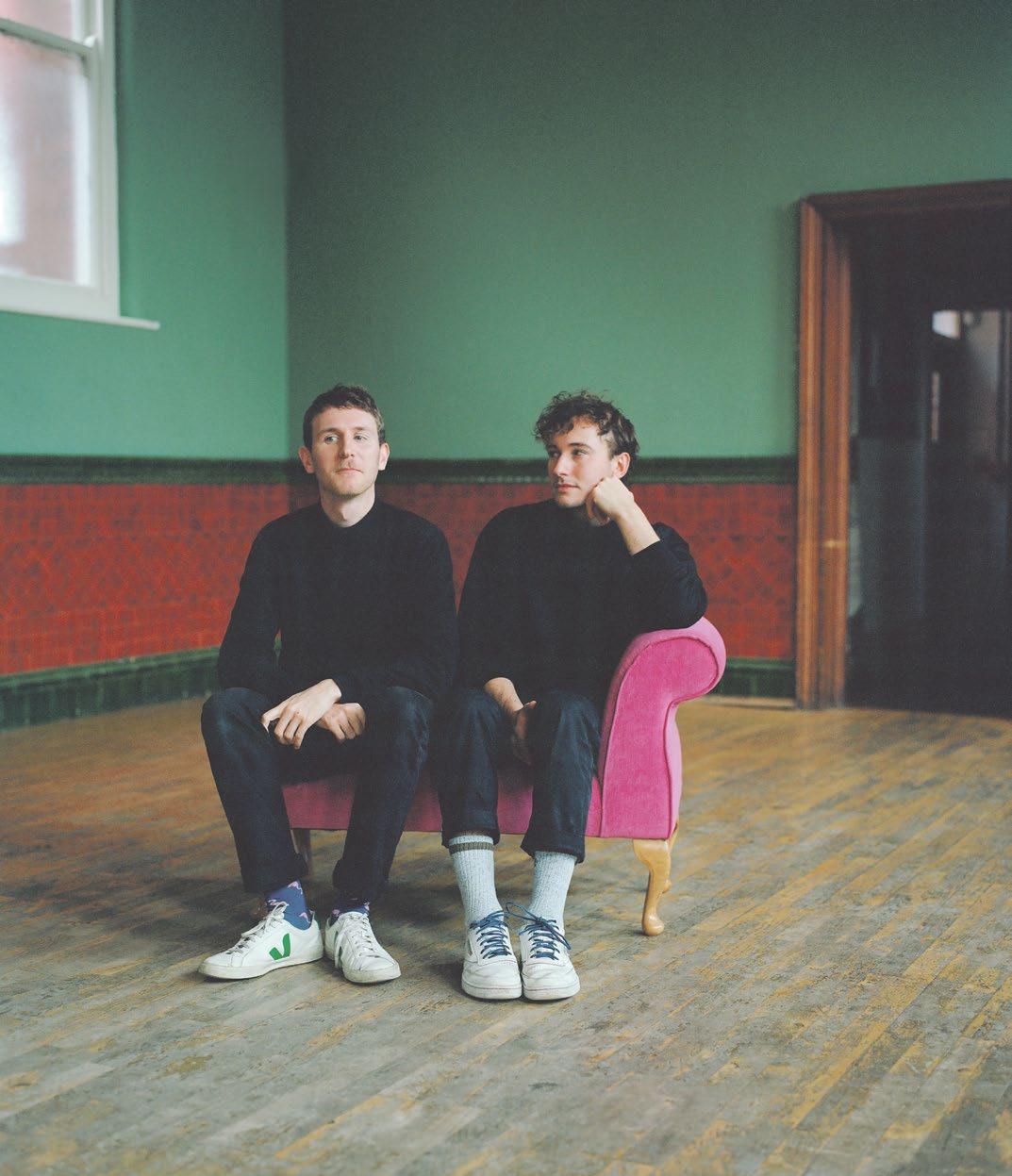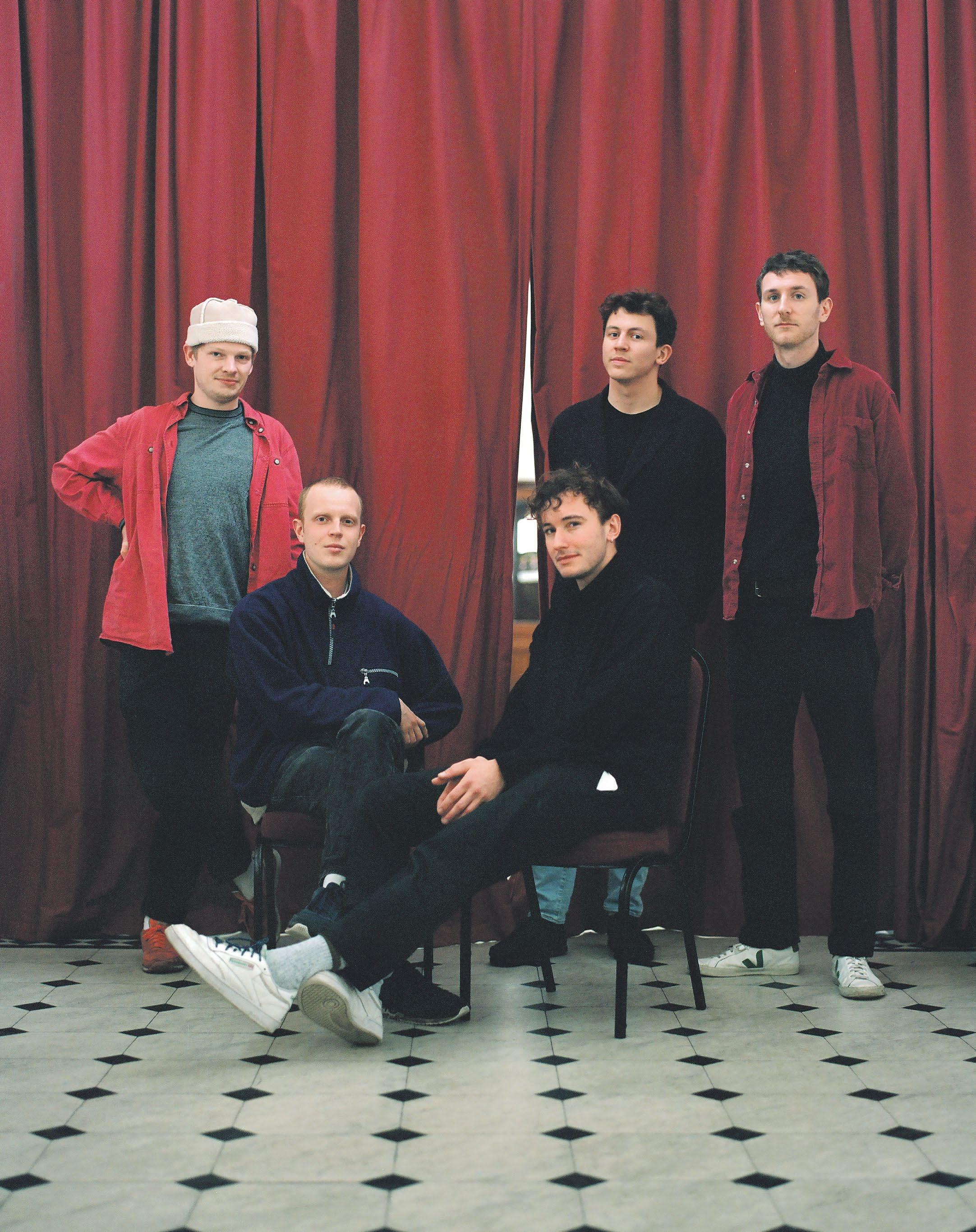
6 minute read
SOMETHING IN THE WATER
from Crack Issue 108
Audacious and eccentric, Squid are part of an exciting new wave of British alternative rock

There are a lot of achievements that Squid could cite as their proudest so far: being playlisted on BBC radio, opening for post-punk pioneers Wire, selling out their 2020 London Scala show six months in advance – and all of this while still unsigned. Their actual answer, however, is a little more niche.
“We just found out Vic Reeves likes us,” beams guitarist and singer Anton Pearson, peering at me from across a cramped cafe table on a chilly December day. “He told The Times we sound like early Roxy Music and Captain Beefheart,” lead singer and drummer Ollie Judge expands, equally impressed, before Anton takes over again. “It's huge, actually, because I grew up watching Shooting Stars and we chat about Vic Reeves and Bob Mortimer all the time. It just feels completely bizarre that someone we’ve grown up with enjoys the cultural output of the likes of us.”

It’s not the first time surrealist comedy has seeped into the mythology of the five-piece. Last September’s debut EP boasted a working title of Barry Homeowner, a name borrowed from Mortimer’s wildly tangential football podcast Athletico Mince. When Anton says he’s “still bitter” that the rest of the band eventually overruled him to call the collection Town Centre, it’s initially difficult to tell whether he’s joking or deadly serious.
The same goes for much of Squid’s press so far, which
is littered with stories that often seem too absurd to be real. For example, the story that guitarist and vocalist Louis Bourlase was set upon by a SWAT team aged 13 is true. Also true: Laurie, Anton and Ollie used to be in a funk and soul covers band that was variously named Better Call Soul and Soul Campbell, before they finalised Squid’s line-up in late 2015. And so too is the fact that their name is inspired by Ollie’s near-fatal experience choking on calamari. “He definitely did almost die,” bassist and brass player Laurie Nankivell confirms today. “We were there, watching on.”

Not true, however, is the rumour that their debut album is being produced by Quincy Jones and will be released via Roc-A-Fella Records – Louis and keyboardist Arthur Leadbetter admit to fabricating that one while bored in an interview. As far as the Squid backstory goes, however, this anecdote serves as an effective insight into the psychology of the band and their innate playfulness.
This playfulness, unsurprisingly, bleeds into their music too. The origins of the outfit can be traced back to a jazz night in Brighton, where Anton, Ollie, Louis, Laurie and Arthur first met while studying (four out of five members are former University of Sussex students). “I vividly remember meeting you, Louis,” Arthur smirks. “We were standing outside my flat, late into the night, and you came up to me, glass of wine in one hand, and said, ‘Arthur, didn't you think that piece by Terry Riley that we listened to today in lecture was fascinating?’” As the rest of the band explode into laughter, Louis bats back, “And what did you say? ‘Leave me alone?’”
Louis Bourlase
With shared inspirations that range from minimalist composers Riley and Philip Glass to Munich-based jazz label ECM Records and krautrock pioneers NEU!, it’s little wonder Squid don’t sound alike from track to track, let alone the current crop of British guitar bands. Released in September 2018, their nervy breakout single The Dial was as if Television met Gang of Four. Meanwhile, last February’s spiky follow-up Houseplants found Ollie excoriating London’s extortionate rental market through his whimsical deadpans, underpinned by motorik beats and no wave-style sax, featuring not one but two lengthy breakdowns.
Today, the quintet maintains there’s never any overarching plan during the songwriting process. “We just get together and play, and whatever's most fun to make, that's what it sounds like,” Anton says, which explains why September’s Town Centre EP ricochets from ambient soundscapes (Savage) to weirdo punk-funk (The Cleaner) and soundtracks to nonexistent spaghetti westerns that seem to be set in an alternate universe (Rodeo).
It makes perfect sense that all their releases since The Dial have been put out via Speedy Wunderground, the singles label currently setting the agenda for British guitar music. Founded by Bat For Lashes and Hot Chip producer Dan Carey, and run from his south London recording studio, in the past two years alone the cult 7-inch imprint has nurtured a new wave of truly inventive bands. Think black midi, Flamingods, Black Country, New Road and Sinead O’Brien.
Carey is the only producer versatile enough to wrangle their scattergun ideas into some coherent shape. “I don't think we really know that yet,” Louis replies. “But he has these Speedy Wunderground rules – like, record it in one take, with the lights off, with no lunch break – that definitely makes us work in a specific way.”
“We turn the lights off and have lasers on,” Anton expands, “and sometimes they go in your eyes and it's hard to concentrate. So I think we haven't always abided to every rule.” Arthur takes over: “You need someone who allows you to feel comfortable pushing your own boundaries, and who can help you create a new vision of what’s in your head. That's what I think a good producer does, and that's what Dan does. For that moment you're in the studio, he's the sixth member of the band.”
As lyricists too, they insist their intentions are far less calculated than close readings would suggest. Take The Cleaner, which finds Ollie playing the titular character who’s being roundly ignored by everyone else in the office. Surely it’s critiquing the dehumanising nature of late-stage capitalism? “Maybe it is subconsciously,” he says hesitantly, “but I prefer to think of it as [looking at] small issues that relate to a wider picture. It’s more stream of consciousness than storytelling.”
“That doesn't take away from the fact that some people might see a song like Houseplants as political,” Arthur concedes. “There's absolutely nothing wrong with that. And that might be the case, because it's what you take from the track that can make it political.”
evasive when discussing how many record labels there are currently courting them. “There've been a couple of lunches here and there,” Louis concedes and Laurie quips, “some Greggs sausage rolls. Some incognito service station meetings.” Arthur insists, however, that the band’s priority is writing new music for the album.

“This week we’re going to a cabin near Bristol, doing a Bon Iver, but for three days,” Anton grins. “I’ll bring the craft beer,” laughs Ollie. They hope to have an album out at some point next year, but as for the shape that new material might take, well, your guess is as good as theirs. “Who knows, it might end up being so strange that we'll be forced to self-release it,” Louis says semiseriously, causing Laurie to exclaim, “I'd quite like that!”
However the record ends up sounding, the audience eagerly anticipating its release already extends far beyond the British Isles. “Belgium seem to love us,” says a bemused-sounding Ollie, while Louis seems equally mystified recounting a fan encounter in Germany. “I remember walking through Berlin after playing a gig in some quite nondescript area of town, and this guy just walked past and hissed, ‘Houseplants!’ at us. Honestly, it was surreal.” You sense Squid wouldn’t want it any other way.
Town Centre is out now via Speedy Wunderground
Words: Gemma Samways
Photography: Ashley Bourne




